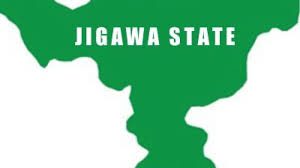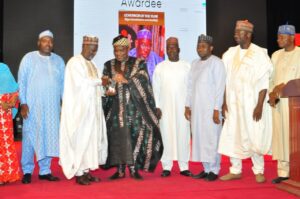AfricaFertilizer holds data validation workshop for Nigerians
AfricaFertilizer.Org (AFO) has organised a fertiliser technical working group workshop for stakeholders in the fertiliser sector to discuss and validate Nigeria’s 2022 fertiliser statistics.
The two-day workshop ended on Thursday in Lagos.
AfricaFertilizer is an initiative of the International Fertiliser Development Center (IFDC), established to promote data-driven decisions for African food systems, by providing high-quality, reliable, credible, and timely fertiliser statistics and information in over 20 sub-Sahara African countries.
AFO Programme Manager, Mr Sebastian Nduva said that the purpose of the workshop at the national level was to garner relevant data to boost the growth of the fertiliser industry.
“The purpose of organising the technical group at the national level is basically to bring together all the stakeholders in the fertiliser value chain to lend credibility to the data and statistics we provide out there.
“So, we have the private sector and the government, research institutions and customs, among others to validate national statistics in terms of fertiliser consumption.
“We also make rudimentary demand projections for the subsequent planting seasons,” Nduva said.
He added the meeting would enable players in the industry to resolve underlying and hindering issues affecting the distribution of fertilisers in the country.
“As a key output of this meeting, we have validated statistics for the country and as well get to resolve issues that are underlying and hindering the distribution of fertilisers.
“At this workshop, we take the validation exercise very critically and any data that is not agreed upon by the stakeholders, we go a step further and work with them on a one-on-one basis to make sure that whatever is put out there is accurate.
“This workshop is key in the fertiliser industry not only in Nigeria but in all of Africa,” he said.
On his part, a Deputy Director at the Federal Ministry of Agriculture and Rural Development (FMARD), Mr Sale Adamu said the workshop was important in driving the policies and decisions of the ministry.
“We are grateful to the IFDC for this workshop. It is a workshop where we take validated production data of the fertiliser sector.
“The data provided at the workshop will help to make the work of FMARD easier as the registrar of all fertiliser blending companies locally.
“The workshop enables us to have more information that we did not have previously from the various stakeholders that are invited to come and present what they have.
“It assists us to work better and when we have issues the data enables us to map out solutions to them,” Adamu said.
Also speaking, a data analyst at the Fertiliser Producers and Suppliers Association of Nigeria, Mr Moses Negedu stressed the need for relevant data to drive the sector’s growth.
“This workshop is going to have a very positive impact because once we can validate data, then we can now know where we are in the fertiliser industry and where we should be.
“Now we know our apparent consumption of fertilisers locally and we see all the gaps that are in the sector, and we now know how to tackle them.
“We have a lot of government agencies here that can take the feedback of this meeting to the government and it affects the policies that will come and affect the industry, as a whole,” Negedu said.
Commending the organisers of the workshop, the Executive Secretary, West African Fertiliser Association (WAFA), Mr Innocent Okuku said relevant data would drive the growth of the sector.
“WAFA’s intention is to get the private sector to work together to support the improvement in the fertiliser industry in West Africa.
“When you compare West Africa and indeed the whole of sub-Saharan Africa with the rest of the world, we are lagging far behind in fertiliser use which is the major reason why we are not able to feed ourselves and we depend on import for a number of food items that we require.
“So, increasing the use of fertilisers will lead to increase yield and ultimately help us feed ourselves the more and be less dependent on imported food.
“WAFA works with the IFDC and other partners across each of the countries in West Africa to look at the data of production, export, consumption and other things related to fertiliser to assess the progress we are making to get greater output for agriculture.
“This data allows us to see where we are and based on that take decisions about how we can progress in the journey to make sure we are able to feed ourselves,” Okuku said.




